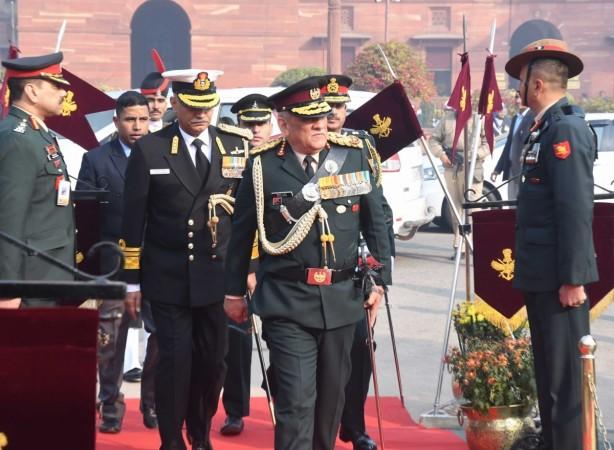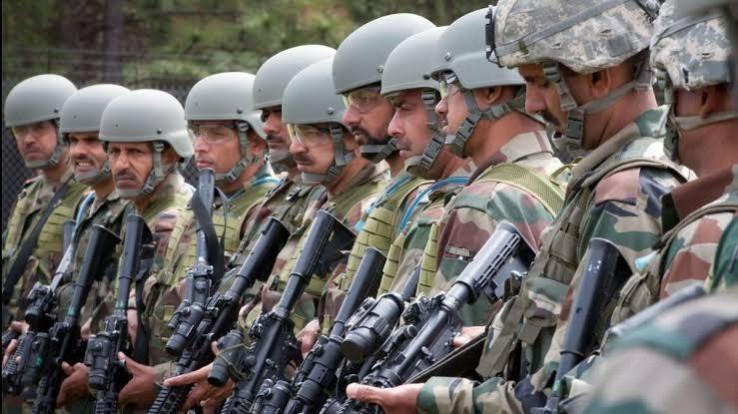As the Indian defence forces grapple with the increasing budget on salaries and pensions of its personnel, the Department of Military Affairs (DMA) is working on a slew of measures to keep a check on expenditure.
The DMA under Chief of Defence (CDS) General Bipin Rawat, is planning to increase the retirement age of its serving personnel. Moreover, the department is also considering a uniform retirement age of the officers in the Army, Navy and Air Force. The re-employment in the defence forces will also be looked into to rationalize the same.
As per a report in the Print, the re-employment obligations are also being tweaked so that re-employed officers can work at about the same rank, rather than the current practice of the officer drawing the income of his rank but having far reduced responsibilities.
The biggest issue comes at the 'Colonel' position, because the three services have varying retirement ages, with the Indian Air Force having two distinct retirement ages depending on whether or not one is in the 'flying branch.' A Colonel-rank officer in the Army retires at the age of 54, while in the Navy, his counterpart retires at the age of 56.

One of the sources said, "Every year, there is a vacancy of nine Brigadiers in the BSF. When a Brigadier joins the BSF, he is posted as DIG, which is generally considered the equivalent of a Brigadier. He draws the salary of a Brigadier and works as a Brigadier only. In the Army, the Brigadier is given responsibilities that are actually given to a Lt Col-rank officer in staff duties."

Major re-haul in forces
The DMA, led by Gen. Bipin Rawat, is tasked with ensuring that, even if re-employment occurs, the force gets the most out of the situation by ensuring that officers continue to work at the same level. Making the retirement age the same for all three services will also assure uniformity and address the officer shortage.
The military had severe heartburn after a DMA note on the proposed new retirement and pension policy was released in October last year, with hints that the three services were not on board. However, the proposed modifications to pension entitlements for people requesting premature release were a major source of worry at the time.









!['Had denied Housefull franchise as they wanted me to wear a bikini': Tia Bajpai on turning down bold scripts [Exclusive]](https://data1.ibtimes.co.in/en/full/806605/had-denied-housefull-franchise-they-wanted-me-wear-bikini-tia-bajpai-turning-down-bold.png?w=220&h=138)



